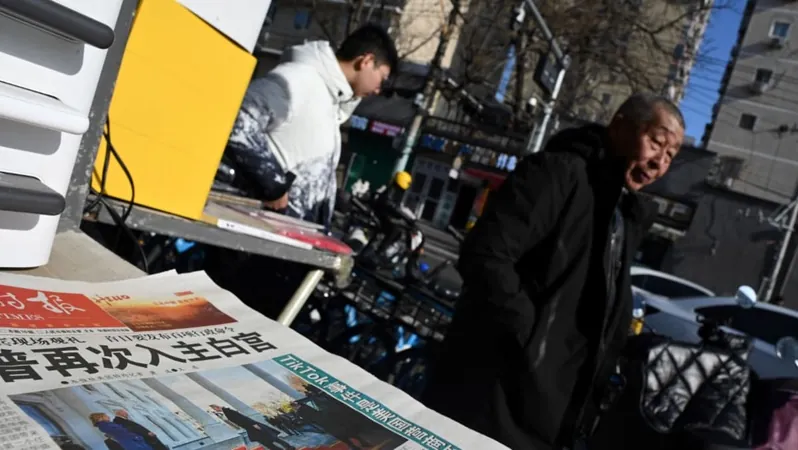
China's Approach to Trade Cooperation as Trump Begins Second Term
2025-01-21
Author: Wei Ling
BEIJING:
On January 21, China expressed its desire to foster cooperation with the United States to address ongoing trade challenges, coinciding with President Donald Trump's inauguration for a second term. This comes in the wake of Trump's previous threats to impose significant tariffs on Chinese imports.
Foreign ministry spokesman Guo Jiakun stated that China is committed to enhancing dialogue and communication with the U.S. to manage differences and broaden mutually beneficial cooperation. He emphasized the need for both nations to work together to promote stable, healthy, and sustainable economic and trade relations.
Guo acknowledged existing "differences and frictions" but highlighted that the potential for cooperation and common interests between China and the U.S. remains vast, stating, "The two sides can strengthen dialogue and consultation in this regard."
As the world’s largest economies, China and the U.S. have seen their trade relationship become increasingly tumultuous over recent years. During his first term, Trump imposed tariffs on Chinese imports, citing unfair trade practices. This pressure continued under President Joe Biden, who implemented restrictive policies targeting Chinese access to advanced technology, particularly in semiconductor manufacturing.
Trump's return to the presidency raised concerns about the possibility of even higher tariffs, as he pledged during his campaign. China's economy, heavily reliant on exports, faces further challenges as it tries to pivot towards greater domestic consumption amid these trade tensions.
During the conference, Guo was also asked about the future of TikTok, the Chinese-owned social media platform facing potential bans in the U.S. due to national security concerns. He conveyed China's hope for a fair business environment for Chinese companies operating in the U.S., asserting that Beijing values open and equitable trade practices.
In a separate matter, Guo criticized Trump's recent reinstatement of Cuba on the list of state sponsors of terrorism just days after Biden had removed the country from it. He condemned this action as revealing a "hegemonic, high-handed and bullying face of the United States." Guo reiterated China's long-standing support for Cuba and its opposition to the U.S. economic blockade against the island nation, suggesting that the swift reversal of Cuba’s status undermines Washington's credibility on the international stage.
As global dynamics shift, all eyes are on how these nations will navigate their complex relationship, especially regarding trade policies and international cooperation. Will the U.S. and China find common ground, or are they headed for a deeper rift? Only time will tell.




 Brasil (PT)
Brasil (PT)
 Canada (EN)
Canada (EN)
 Chile (ES)
Chile (ES)
 Česko (CS)
Česko (CS)
 대한민국 (KO)
대한민국 (KO)
 España (ES)
España (ES)
 France (FR)
France (FR)
 Hong Kong (EN)
Hong Kong (EN)
 Italia (IT)
Italia (IT)
 日本 (JA)
日本 (JA)
 Magyarország (HU)
Magyarország (HU)
 Norge (NO)
Norge (NO)
 Polska (PL)
Polska (PL)
 Schweiz (DE)
Schweiz (DE)
 Singapore (EN)
Singapore (EN)
 Sverige (SV)
Sverige (SV)
 Suomi (FI)
Suomi (FI)
 Türkiye (TR)
Türkiye (TR)
 الإمارات العربية المتحدة (AR)
الإمارات العربية المتحدة (AR)